UT Energy Week 2021
Speakers and Panelists
 David Bodek
David Bodek
Senior Director
S&P Global
Funding the Transition: How Not to Break the Bank
David Bodek is a Senior Director and Sector Leader of S&P Global Ratings’ Public Power and Electric Cooperative practice. David speaks frequently at industry conferences, meets with utilities’ investors, actively monitors the credit ratings of a portfolio of high-profile public power and electric cooperative utilities, provides analytical guidance to colleagues, chairs rating committees, and develops rating methodologies.
David also gained extensive experience at S&P Global Ratings performing credit analyses for investor-owned utilities, their unregulated affiliates, and project-financings in the energy sector.
David holds a B.A., cum laude, in Economics from the State University of New York at Albany, and a Juris Doctor degree from the Hofstra University School of Law, where he was a member of the Law Review. Before joining S&P, David practiced law with an emphasis on commercial litigations and utilities’ regulatory proceedings. He holds a license to practice law in New York State’s courts and federal courts.
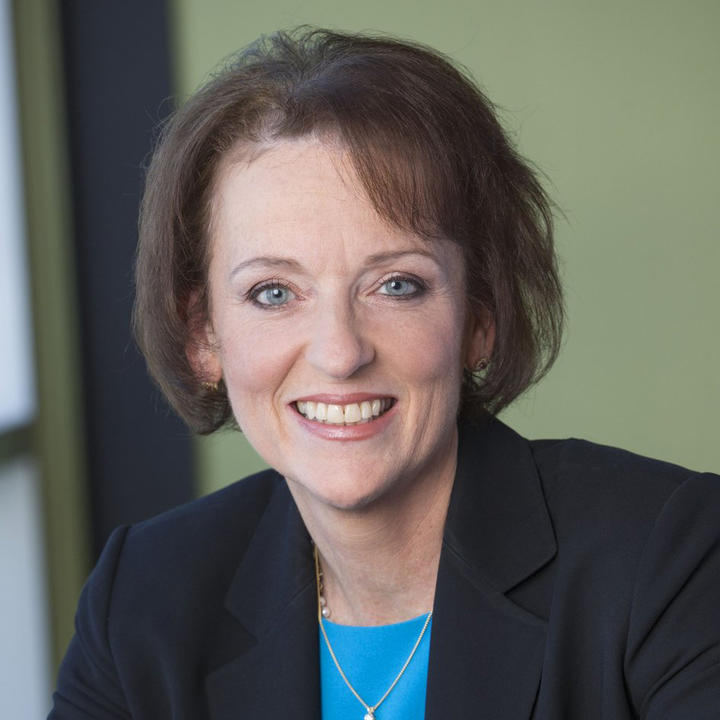 Barbara Burger
Barbara Burger
President, Chevron Technology Ventures and Vice President for Innovation
Chevron
Funding the Transition: How Not to Break the Bank
Barbara Burger, PhD., is president of Chevron Technology Ventures (CTV) and vice president of Innovation. CTV addresses Chevron’s business needs through the identification and integration of innovative, externally developed technologies that strengthen Chevron’s business now and in the future. Barbara joined Chevron in 1987 as a research chemist and has held a number of management positions across International Marketing, Chemicals, Technology Marketing and Lubricants.
Her many civic and industry affiliations include leadership positions with Houston Exponential and the Houston Symphony Society. Beyond Houston, she serves on the leadership counsel for Cyclotron Road, the external advisory council for the National Renewable Energy Laboratory, the governing board of the MIT Energy Initiative and is a member of the MIT Visiting Committee. She was recently appointed to the Board of Oil and Gas Climate Initiative Climate Investment LLP. Barbara is an active alumnus of the University of Rochester where she serves on the Board of Trustees and the university’s River Campus Libraries National Council. She established the Barbara J. Burger Endowed Scholarship in the Sciences and founded the Barbara J. Burger iZone, where students generate, refine and communicate ideas for social, cultural, community and economic impact.
Barbara holds a bachelor’s degree in chemistry from the University of Rochester, a doctoral degree in chemistry from the California Institute of Technology and an academic honor MBA in finance from the University of California, Berkeley.
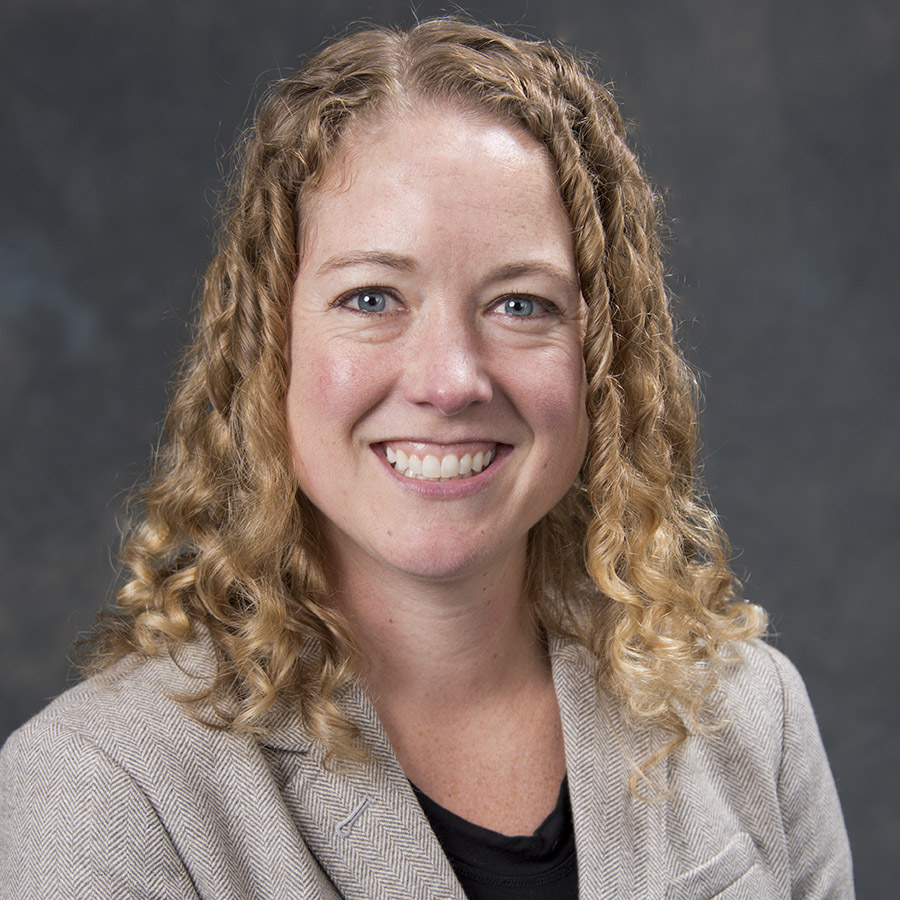 Sanya Carley
Sanya Carley
O’Neill Professor, O’Neill School of Public and Environmental Affairs
Indiana University
Energy Transition: Past, Present, and Future
Professor Sanya Carley’s research focuses on policy and other efforts aimed at advancing the innovation of low-carbon and efficient energy technologies in both the electricity and transportation sectors. Her recent projects focus on the U.S. energy transition, including a study of vulnerable populations to the transition and a study of public acceptance of energy infrastructure. In other work, she evaluates the effects, design, and unintended consequences of renewable portfolio standards, corporate average fuel economy standards, and net energy metering standards, among other policies. Ongoing research also focuses on energy-based economic development and sustainability in industry. She publishes her research in a range of journal outlets, including Journal of Policy Analysis and Management, Environmental and Resource Economics, Environmental Science & Technology, Energy Economics, Energy Research and Social Science, and Risk Analysis, among others.
A member of IU faculty since 2010, Carley teaches courses on energy economics, markets, and policy, as well as research design for the Certificate of Advanced Research & Inquiry undergraduate program. Her demonstrated commitment to teaching and service have been recognized with multiple awards, including the IU Trustees Teaching Award in 2012, the Outstanding Junior Faculty Award in 2013, the Most Personable Faculty Member Student Choice Award in 2016, Campus Catalyst Award for Excellence in Teaching in 2017, and the Midwest Energy News 40 Under 40 award.
Carley has served as a consultant for the Environmental Protection Agency, the World Bank Group, the Institute for International Business, Nicholas Institute for the Environment, and RTI International.
 Mijin Cha
Mijin Cha
Assistant Professor, Urban and Environmental Policy
Occidental College
Community Transitions: Enabling a Deep Change
Mijin researches and writes about climate and environmental justice, just transition– how to transition to a low carbon economy in a way that protects workers and communities, labor/climate coalitions, and the relationship between inequality and the climate crisis. Currently, Mijin is an assistant professor at Occidental College, Urban and Environmental Policy Department and a Fellow at Cornell University’s Worker Institute. Mijin is also on the Board of Center on Race, Poverty, and the Environment (CRPE), Good for Girls, and Welcome Ideas. Her previous work experience includes Adjunct Professor at Fordham University School of Law, Associate Director at PolicyLink, Senior Policy Analyst at Demos, Director of Campaign Research/ Policy Director at Urban Agenda (now ALIGN), Senior Policy Analyst at the Progressive States Network, and visiting legal scholar positions at CRPE, ICIMOD and IUCN.
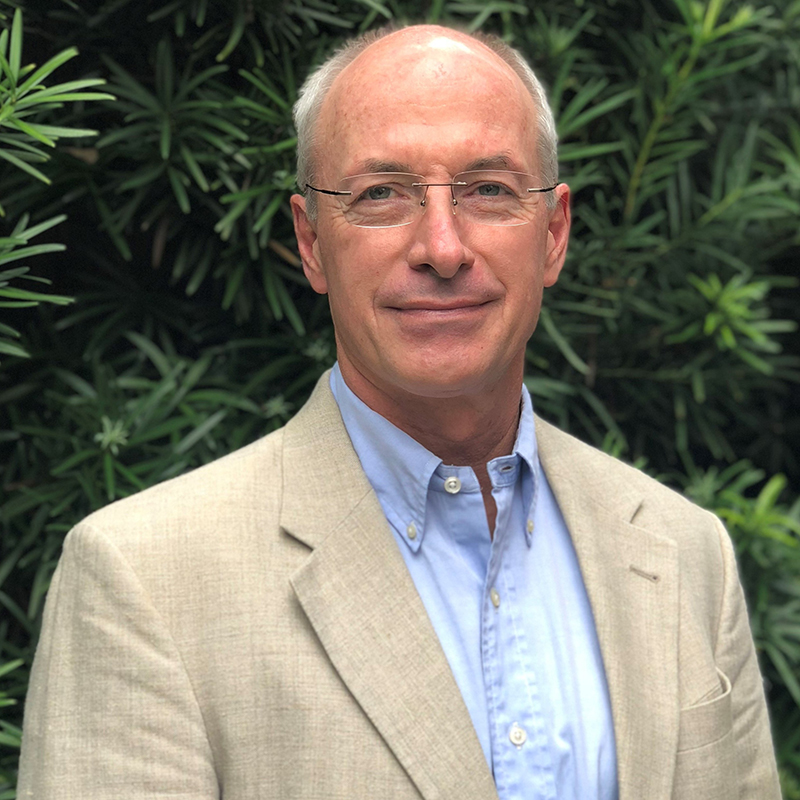 Richard Chuchla
Richard Chuchla
Energy and Earth Resources Graduate Program Director
Jackson School of Geosciences
Getting There: Energy Leadership in Unprecedented Times
Born in Chile of Polish parents where he lived for 14 years. He came to the United States to go to school, as there was no high school in the small mining town in which we lived. Richard attended the Phillips Exeter Academy, Cornell University and completed his graduate studies at the University of Texas at Austin. Richard became a U. S. citizen in 1988.
Richard worked for 35 years in the minerals, coal and oil and gas business, all for one company (Exxon, then ExxonMobil). He then had the privilege of leading numerous successful exploration and development ventures.
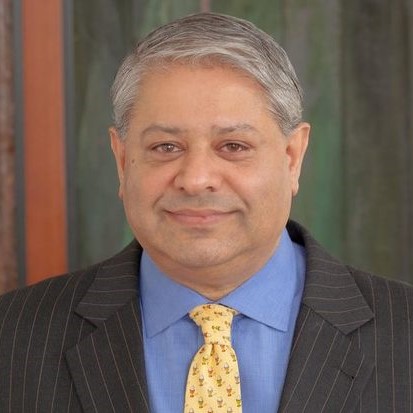 Ashvin Dayal
Ashvin Dayal
Senior Vice President
Power & Climate Initiative, The Rockefeller Foundation
Philanthropy in Energy Transition: The Visible Hand?
Ashvin Dayal leads the Foundation’s global Power initiative aimed at scaling up energy access in order to drive economic and social development. He has overseen the Foundation’s pioneering investments in the renewable energy mini-grid space in India and the establishment of Smart Power India, a dedicated platform to support the acceleration of last-mile electrification. As one of the Foundation’s long-term priorities, Ashvin is responsible for shaping its global power investments with an ambitious goal of ending energy poverty and improving the livelihoods of hundreds of millions of people over the next decade.
Mr. Dayal joined the Rockefeller Foundation in 2008 as its Asia Managing Director, running the Foundation’s regional office in Bangkok, Thailand. From there he led the Asian Cities Climate Change Resilience Network, a major nine-year partnership that equipped over 50 Asian cities to better cope with climate change impacts. He also oversaw the Foundation’s global Inclusive Economies portfolio, a policy and research effort to advance development and impact investments that drive more broadly shared prosperity. Before joining the Foundation, he held a range of senior leadership roles over 15 years with Oxfam in Asia, Europe, and the Middle East. This included leading its largest-ever relief and recovery effort in the aftermath of the 2004 Asian Tsunami, and overseeing the creation of Oxfam India.
In addition to his experience across Asia, Ashvin also spent several years working in the Middle East and Eastern Europe, supporting post-conflict reconstruction and economic development programs in Bosnia, Yemen, Egypt, Lebanon, Israel and the Palestinian Territories. Ashvin holds a bachelor’s degree from the School of Oriental and African Studies at the University of London, and a master’s degree from the School of Advanced International Studies at Johns Hopkins. He currently lives in Thailand and is in the process of relocating with his family to New York.
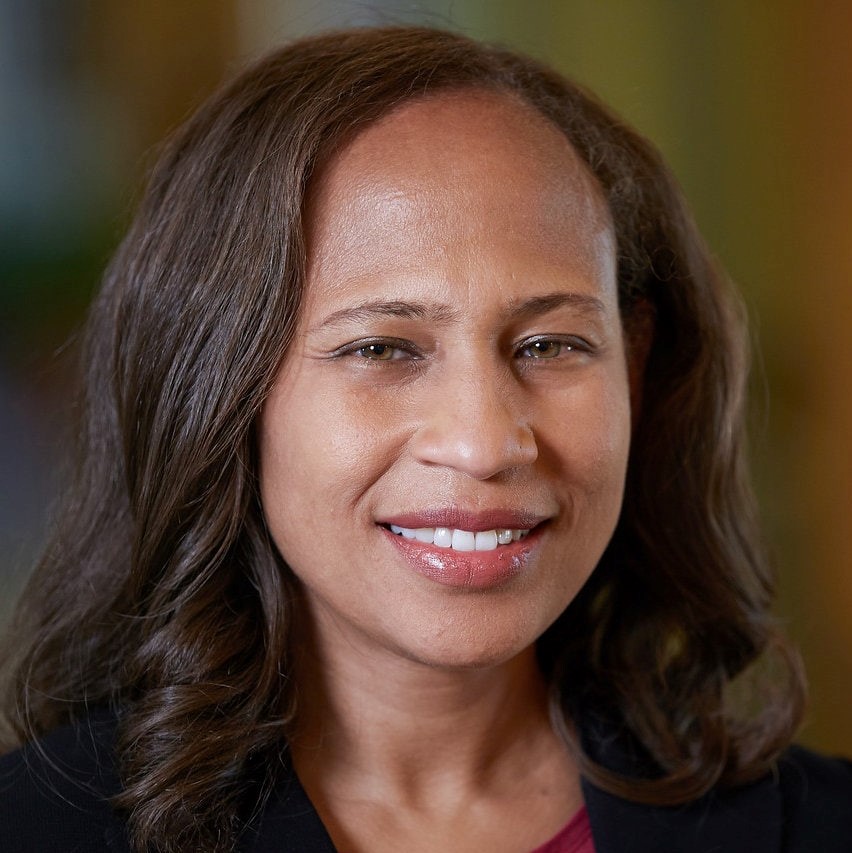 Danielle Deane-Ryan
Danielle Deane-Ryan
Senior Advisor
Libra Foundation
Philanthropy in Energy Transition: The Visible Hand?
Danielle Deane-Ryan has devoted her career to her passion for forging equitable climate crisis solutions. She is a senior advisor to the Libra Foundation, and a National Academies of Science Deep Decarbonization Committee member. Previously, Danielle directed the Inclusive Clean Economy Program at The Nathan Cummings Foundation, supporting collaborations that catalyzed world-leading climate and equity policies. She was a co-author of Solar with Justice in collaboration with the Clean Energy States Alliance. Danielle served in the Obama Administration as Senior Advisor for External Affairs and Acting Director for Stakeholder Engagement at the Department of Energy’s Office of Energy Efficiency & Renewable Energy. She was Green 2.0’s founding executive director; launched the New Constituencies for Environmental Program at the Hewlett Foundation; and managed the Commission to Engage African Americans on Energy, Climate Change, and the Environment at the Joint Center for Political and Economic Studies. She has an M.Sc. from the London School of Economics in Environment and Development, and a B.A. from Williams College in Political Economy with an Environmental Studies Concentration.
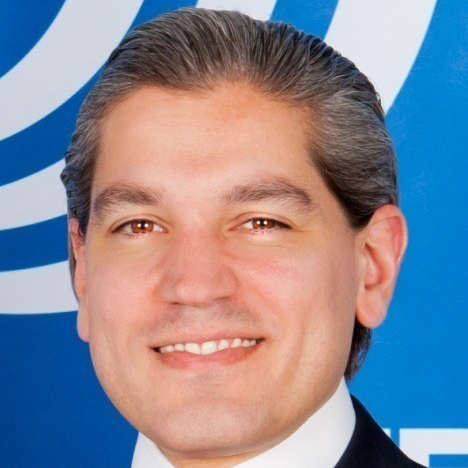 Aldo R. Flores-Quiroga
Aldo R. Flores-Quiroga
Visiting Professor, LBJ School of Public Affairs
The University of Texas at Austin
Energy Transition: Past, Present, and Future
Aldo Flores-Quiroga is former deputy secretary of energy for hydrocarbons at Mexico’s Ministry of Energy (2016–18), where he led a team of more than 180 government officials to implement the historic opening of Mexico’s hydrocarbons sector. He launched an oil exploration strategy and production auctions, helped liberalize Mexico’s markets for refined products and natural gas, helped create strategic inventories for gasoline, diesel and natural gas, and negotiated Mexico’s role in the unprecedented OPEC-Non OPEC pact to stabilize oil markets.
Previously, Dr. Flores-Quiroga was secretary general of the International Energy Forum (IEF) (2012–17), assistant secretary for international affairs at Mexico’s Ministry of Energy (2007–11) and assistant secretary for bilateral economic relations at the Ministry of Foreign Affairs (2001–05). He represented Mexico at the International Atomic Nuclear Agency (IAEA), the Nuclear Energy Agency (NEA), the United Nations Industrial Development Organization (UNIDO), the International Energy Forum (IEF), the Latin American and Caribbean Energy Organization (OLADE), and the International Renewable Energy Agency (IRENA). He served as the executive secretary at the National Institute of Public Administration, as the director general for international affairs for Mexico’s Secretariat of energy, and as the director general for bilateral affairs at Mexico’s Secretariat of Foreign Affairs.
Dr. Flores-Quiroga taught courses in international political economy, comparative politics, economic theory, public policy and economic development at the School of Politics and Economics of the Claremont Graduate University in California (1996–2009). He has published books and articles in English and Spanish on Mexican trade, exchange rate and energy policy, and has been featured on CNN, BBC, Bloomberg, CNBC and other media outlets.
 Erik Funkhouser
Erik Funkhouser
Director of Research Coordination and Partnerships
Energy Institute, The University of Texas at Austin
Funding the Transition: How Not to Break the Bank
Erik Funkhouser is Director of Research Coordination and Partnerships for the Energy Institute. In his role, Erik drives value to the UT campus through EI’s research programming, interaction with external funders and partners, and initiatives to improve UT’s energy research position.
Erik joined EI from the Texas State Energy Conservation Office (SECO), where he was the program manager for the Texas Clean Energy Incubator (CEI) and LoanSTAR Revolving Loan retrofit programs. Prior to SECO, he served as a program officer for market characterization and evaluation at the New York State Energy Research and Development Authority (NYSERDA), where he focused on program strategy and performance.
Previously, Erik was a project manager with the Energy Systems Transformation research group at the LBJ School of Public Affairs, leading multi-pronged energy policy and innovation studies. Erik was a Senior Consultant with Research Into Action (now Opinion Dynamics), focusing on emerging technology and RD&D research and program evaluation. Erik has published numerous research studies and market reports spanning energy technology and policy subject areas, and holds a Master of Public Affairs degree from the LBJ School of Public Affairs.
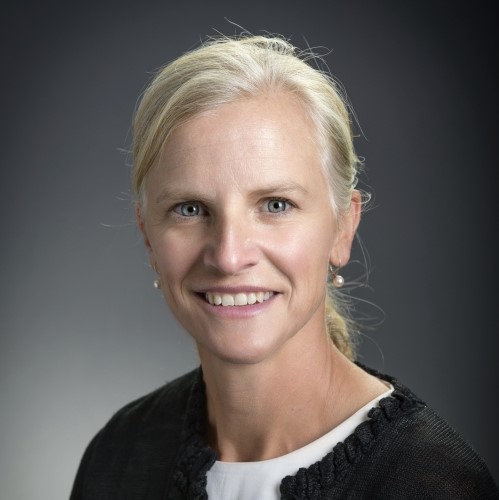 Julia Haggerty
Julia Haggerty
Associate Professor, Department of Earth Sciences
Montana State University
Community Transitions: Enabling a Deep Change
Julia Haggerty, an assistant professor of geography in the Department of Earth Sciences at Montana State University, teaches courses on Human Geography, Energy Resources and Rural Economic Geography. Her Resources and Communities Research Group has a broad portfolio of externally-funded research projects focused governance and the experiences of resource peripheries. She also co-directs the Energy Impacts Research Coordination Network, an international forum for cross-disciplinary social science coordination and exchange. Haggerty holds a B.A. from Colorado College and a Ph.D. in history from the University of Colorado at Boulder. From 2005 to 2007, she was post-doctoral fellow at the Centre for the Study of Agriculture and Environment at the University of Otago in Dunedin, New Zealand. From 2007 to 2013, Haggerty was a policy analyst for the regional non-profit research group Headwaters Economics.
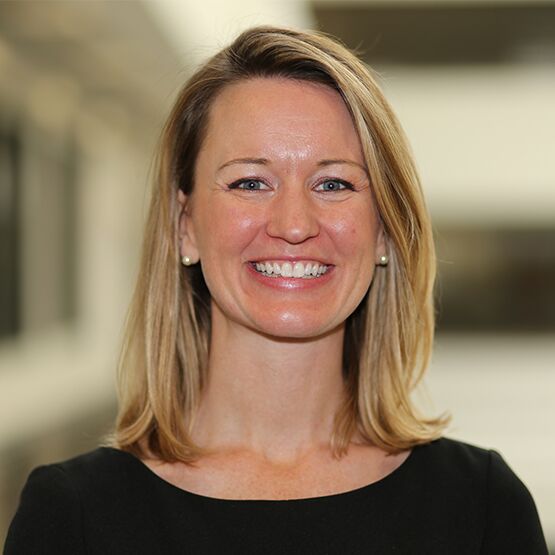 Dana Harmon
Dana Harmon
Executive Director, Texas Energy Poverty Research Institute
Community Transitions: Enabling a Deep Change
Dana Harmon has 13 years of leadership and management experience in the energy and consumer products industries. As Executive Director of TEPRI, Ms. Harmon has overall strategic and operational responsibility for execution of TEPRI’s mission to collect actionable data that industry partners can utilize to mitigate the energy costs of low-income consumers across Texas. Ms. Harmon brings experience from two prior start-ups, an engineering background, and a broad skillset in project management, operations, marketing, business development, and technology commercialization.
Prior to joining TEPRI, Ms. Harmon spent seven years in the oil and gas industry. She led the marketing and business development functions for an Austin Technology Incubator start-up providing geophysical technology to upstream operators. In this role, she drove the company’s first successful product launch, developed a robust opportunity pipeline, led demand generation activities, and managed several research projects with academia and industry in the United States and the Middle East.
Ms. Harmon worked previously in Houston, Texas where she managed the global marketing activities for a laboratory start-up bringing to market new exploration technologies serving oil and gas clients. In this role she was responsible for product management, market intelligence, brand development, and financial reporting for offices in the US, Colombia, Brazil, and the Middle East. She led joint industry projects focused on solving common challenges for operators and worked closely with clients, R&D, and operations teams to deliver value to her clients.
Ms. Harmon spent several years in management consulting, advised her clients on supply chain solutions including performance management programs, network strategies, and facilities and systems implementations across the United States.
Ms. Harmon earned a B.S. in Industrial and Systems Engineering from the Georgia Institute of Technology in Atlanta. She has received a Texas Venture Labs Award for Excellence in Energy Innovation, a certification in Marketing Strategy for Business Leaders from Cornell University, and is a Prosci™ certified Change Management Instructor. Her volunteer work includes serving on the advisory board for a local private school, serving on her neighborhood’s community enhancement committee, and volunteering with Child Advocates.
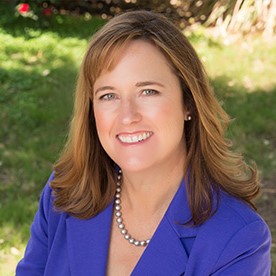 Marilu Hastings
Marilu Hastings
Chief Innovation and Strategy Officer, Cynthia and George Mitchell Foundation
Philanthropy in Energy Transition: The Visible Hand?
Marilu Hastings is chief innovation and strategy officer for the Cynthia and George Mitchell Foundation in Austin. She is the former vice president, sustainability programs at CGMF.
Marilu convenes high-profile, collaborative efforts to promote Texas’s transition to sustainability, including initiatives to protect habitat and species from energy sprawl, address ongoing drought and water management challenges, foster sustainability education curriculum and practices, and adopt clean energy policies. She is also a sought-after strategic and organizational-development advisor to non-profit organizations, foundations, and academic organizations.
Marilu leads a number of national efforts with other prominent U.S. foundations to develop environment grantmaking strategies, define program evaluation protocol, and co-convene conferences and workshops on key issues related to water, natural gas, clean energy, and sustainability science. Marilu serves as a member of the National Petroleum Council at the Department of Energy.
Prior to the foundation, Marilu held leadership positions from 1996 to 2008 at the Houston Advanced Research Center, a non-profit research organization founded by George P. Mitchell. Her work focused on enhancing the integration of social sciences into environmental decision-making. She analyzed the dynamics of environmental decision-making within the oil & gas industry, especially in sensitive and remote environments.
Marilu is a member of the Energy Institute Advisory Board of the University of Texas at Austin; a member of the Advisory Board of the Bureau of Economic Geology at the University of Texas at Austin; a member of the Science Advisory Board of the Environmental Law and Policy Center in Chicago; and a trustee of the Regional Endowment for Sustainability Science. Marilu is a Fellow of the Houston Advanced Research Center. She is a member of the National Academy of Sciences’ Roundtable on Science. Marilu earned a Bachelor of Arts in economics and political science from Duke University, an MBA from the University of Texas at Austin, and a Master of Public Affairs from the University of Texas at Austin.
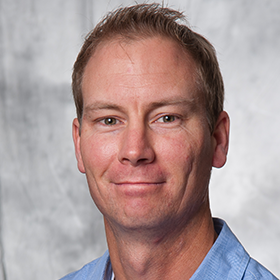 Carey King
Carey King
Assistant Director and Research Scientist
Energy Institute, The University of Texas at Austin
Energy Transition: Past, Present, and Future
Dr. Carey W King performs interdisciplinary research related to how energy systems interact within the economy and environment as well as how our policy and social systems can make decisions and tradeoffs among these often competing factors. The past performance of our energy systems is no guarantee of future returns, yet we must understand the development of past energy systems. Carey’s research goals center on rigorous interpretations of the past to determine the most probable future energy pathways.
Carey is Research Scientist at The University of Texas at Austin and Assistant Director at the Energy Institute. He also has appointments with the Center for International Energy and Environmental Policy within the Jackson School of Geosciences and the McCombs School of Business. He has both a B.S. with high honors and Ph.D. in Mechanical Engineering from the University of Texas at Austin. He has published technical articles in the academic journals Environmental Science and Technology, Environmental Research Letters, Nature Geoscience, Energy Policy, Sustainability, and Ecology and Society. He has also written commentary for American Scientist and Earth magazines as well as major newspapers such as the Dallas Morning News, Houston Chronicle, and Austin American-Statesman. Dr. King has several patents as former Director for Scientific Research of Uni-Pixel Displays, Inc.
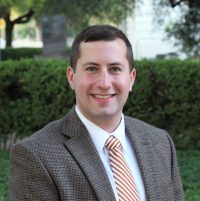 Benjamin D. Leibowicz
Benjamin D. Leibowicz
Associate Professor, Graduate Program in Operations Research and Industrial Engineering
The University of Texas
Technology Pathways: Fork in the Road?
Dr. Benjamin D. Leibowicz is an Assistant Professor in the Operations Research and Industrial Engineering graduate program at The University of Texas at Austin. The program is administered through the Department of Mechanical Engineering. Dr. Leibowicz holds a courtesy appointment in the Lyndon B. Johnson School of Public Affairs, and also supervises student research in the Energy and Earth Resources graduate program.Dr. Leibowicz develops mathematical models and methods to improve decision making on energy and environmental policy and strategy issues. His primary research interests are energy systems, energy and climate policy analysis, integrated assessment modeling, sustainable cities, technological change, and innovation. He approaches these topics from an interdisciplinary perspective and develops modeling frameworks that combine methods from optimization, economics, game theory, stochastic control, and general equilibrium.Dr. Leibowicz’s research projects are funded by federal agencies, industrial corporations, private foundations, and national laboratories, among others. In 2020, Dr. Leibowicz received the Outstanding Young Investigator Award from the Energy Systems Division of the Institute of Industrial and Systems Engineers (IISE), and began a two-year term on its Board. He currently serves on the Editorial Board of Energy Sources, Part B: Economics, Planning, and Policy, and on the Steering Committee for the City of Austin’s 2020 revision of its Community Climate Plan. Dr. Leibowicz has served for four years as a Cluster Chair or Co-Chair at the Institute for Operations Research and the Management Sciences (INFORMS) Annual Meeting. He recently joined the Board of the Energy, Natural Resources, and the Environment (ENRE) section of INFORMS in the Secretary-Treasurer role.Prior to joining UT Austin, Dr. Leibowicz received both PhD and MS degrees in Management Science and Engineering from Stanford University, and earned a BA in Physics with a minor in Economics from Harvard University. While working toward his PhD, he was a research fellow in the Energy and Transitions to New Technologies groups at the International Institute for Applied Systems Analysis.
 Vivian Loftness
Vivian Loftness
University Professor
Paul Mellon University
Technology Pathways: Fork in the Road?
Vivian is a University Professor and former Head of the School of Architecture at Carnegie Mellon University. She is an internationally renowned researcher, author and educator with over thirty years of focus on environmental design and sustainability, advanced building systems integration, climate and regionalism in architecture, and design for performance in the workplace of the future.
She has served on ten National Academy of Science (NAS) panels, the NAS Board on Infrastructure and the Constructed Environment and has given four Congressional testimonies on sustainability. Vivian is recipient of the National Educator Honor Award from the American Institute of Architecture Students and the Sacred Tree Award from the U.S. Green Building Council (USGBC). She received her BS and MS in Architecture from MIT and served on the National Boards of the USGBC, AIA Committee on the Environment, Green Building Alliance, Turner Sustainability, and the Global Assurance Group of the World Business Council for Sustainable Development. She is a registered architect and a Fellow of the American Institute of Architects.
 Jeff Makarewicz
Jeff Makarewicz
Group Vice President and Executive Advisor
Toyota Motor North America
Getting There: Energy Leadership in Unprecedented Times
Jeff Makarewicz serves as executive advisor to the Corporate Strategy and Planning office at Toyota Motor North America (TMNA) located in Plano, Texas. Makarewicz also serves as a group vice president at Toyota Motor North America, Research and Development (TMNA R&D) based in York Township, Michigan.
Prior to his current assignment, Makarewicz was group vice president of the Advanced Mobility Research & Development function at TMNA, where he was responsible for Technical Strategy & Planning, Advanced Mobility Research & Development, and Innovation & Monozukuri solutions for TMNA.
Makarewicz joined Toyota Research & Development in 1990 as an engineer in the Materials Engineering Department and has held various positions in the areas of corporate strategy, product planning, research, design, development and evaluation.
Makarewicz serves on the boards of the Toyota Foundation, the University of Michigan Mechanical Engineering External Advisory Board, and the Michigan Alliance for Greater Mobility Advancement (MAGMA). Makarewicz received his bachelor’s degree from the University of Michigan.
 Ajay Mehta
Ajay Mehta
GM New Energies Research and Technology
Shell
Getting There: Energy Leadership in Unprecedented Times
Ajay Mehta is the General Manager for New Energies Research & Technology at Shell. He leads a global team of over a hundred scientists and engineers dedicated to developing technology solutions to meet the demand for more and cleaner energy. Over the course of his 24 years career at Shell, he has assumed a broad range of technical and leadership roles in the company, including Upstream Production, Operations, CO2 Mitigation, Project Engineering and Technology Management. He is a subject matter expert in natural gas hydrates and has served as a Distinguished Lecturer for the Society of Petroleum Engineers.
He is a board member of the MIT Sustainability Initiative, Energy Advisory Board at the University of Houston, Carbon Leadership Board at Rice University, Materials and Chemical S&T Directorate at the National Renewable Energy Laboratory, Institute for Carbon Management at UCLA, Society of Asian Engineers & Scientists, and Greentown Labs Houston.
Ajay holds a BS in Chemical Engineering from the National Institute of Technology, Karnataka, India, a PhD in Chemical Engineering from the Colorado School of Mines, and an MBA from the Massachusetts Institute of Technology.
 Evan Michelson
Evan Michelson
Program Director
Alfred P. Sloan Foundation
Philanthropy in Energy Transition: The Visible Hand?
Evan S. Michelson, Ph.D. is a Program Director at the Alfred P. Sloan Foundation. Dr. Michelson is responsible for overseeing the Foundation’s Energy and Environment program, which seeks to inform the societal transition toward low-carbon energy systems in the United States by investigating economic, environmental, technological, and distributional issues. The Energy and Environment program is unique for its focus on supporting influential, interdisciplinary research, training, networking, and dissemination efforts. He also manages the Foundation’s grantmaking to the Sloan Digital Sky Survey, a transformational international astrophysics research collaboration focused on exploring the evolution and structure of the universe, the formation of stars and galaxies, the history of the Milky Way, and the science behind black holes and dark matter. Dr. Michelson has experience designing trend monitoring, horizon scanning, and strategic foresight processes throughout the social sector.
Dr. Michelson received his Ph.D. from the Robert F. Wagner Graduate School of Public Service at New York University. He also received a M.A. in international science and technology policy from The George Washington University, a M.A. in the philosophical foundations of physics from Columbia University, and a B.A. in philosophy of science from Brown University.
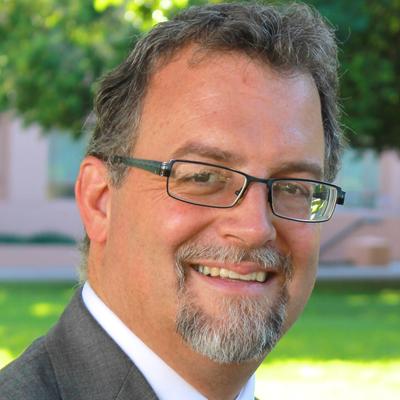 Clark Miller
Clark Miller
Professor, School for the Future of Innovation in Society
Arizona State University
Sustaining the Transition: A New Social Contract
Clark A. Miller’s research interests focus on science, technology & globalization. He writes about the design and critical analysis of knowledge systems in support of US and global policymaking, about the governance challenges posed by new and emerging technologies, and about the social sustainability of transitions in complex, large-scale, socio-technological systems. He has published numerous articles on science and technology policy, studies of science and democracy, international relations, and energy policy. He currently leads a major research effort focused on the social drivers, dynamics, and consequences of energy system change. He is the co-author of The Practices of Global Ethics (with Frederick Bird, Sumner Twiss, Kusumita Pedersen, and Bruce Grelle). He is the editor of Changing the Atmosphere: Expert Knowledge and Environmental Governance (with Paul Edwards); Arizona’s Energy Future (with Sharlissa Moore); Nanotechnology, the Brain, and the Future (with Sean Hays, Jason Robert, and Ira Bennett); Science and Democracy: Making Knowledge and Making Power in the Biosciences and Beyond (with Stephen Hilgartner and Rob Hagendijk); and The Handbook of Science and Technology Studies (with Ulrike Felt, Rayvon Fouche, and Laurel Smith-Doerr). He leads research initiatives in the Quantum Energy and Sustainable Solar Technologies Engineering Research Center, the Person-Centered Technologies and Practices for Individuals with Disabilities IGERT, the US-Pakistan Centers for Advanced Studies in Energy, and the Urban Resilience to Extremes Sustainability Research Network.
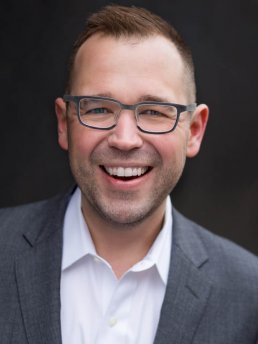 Steven Pedigo
Steven Pedigo
Professor of Practice and Director of the LBJ Urban Lab
LBJ School of Public Affairs
Community Transitions: Enabling a Deep Change
Steven Pedigo is a professor of practice at the Lyndon B. Johnson School of Public Affairs at The University of Texas at Austin and the director of the LBJ Urban Lab.
As an expert in urban economic development, regional cooperation and placemaking, Pedigo has developed strategies for more than 50 cities and regions in the United States and other countries, including New York, Jerusalem, Vancouver, Dallas, Washington, DC, Brisbane, the Yukon, Tulsa, Austin, Portland, Newark, San Diego-Tijuana, Miami, Sao Paulo, Monterrey, Mexico City and many others.
Prior to joining the LBJ School, Pedigo was clinical professor at the Schack Institute of Real Estate at New York University.
Earlier in his career, he served as vice president for the Initiative for a Competitive Inner City (ICIC), a national research organization founded by Harvard Business School professor Michael Porter to encourage private-sector investment into U.S. distressed urban areas.
Pedigo holds a bachelor’s degree from The University of Texas at Austin and graduate degrees from the H. John Heinz III School for Public Policy and Management at Carnegie Mellon University and the University of Illinois at Urbana-Champaign.
 Varun Rai
Varun Rai
Director
Energy Institute, The University of Texas at Austin
Welcome and Intro
Dr. Varun Rai is a Professor in the LBJ School of Public Affairs and in the Department of Mechanical Engineering at the University of Texas at Austin, where he directs the Energy Systems Transformation Research Group (aka “Rai Group”). His interdisciplinary research – delving with issues at the interface of energy systems, complex systems, decision science, and public policy – focuses on studying how the interactions between the underlying social, behavioral, economic, technological, and institutional components of the energy system impact the diffusion of energy technologies. Over the last 15 years, his research has applied various analytical lenses to study technologies and policies in carbon capture and storage (CCS), fuels cells, oil & gas, plug-in hybrid vehicles (PEVs), and solar photovoltaics (PV). He has presented at several important forums, including the United States Senate Briefings, Global Intelligent Utility Network Coalition, and Global Economic Symposium, and his research group’s work has been discussed in The New York Times, The Wall Street Journal, Washington Post, and Bloomberg News, among other venues. He was a Global Economic Fellow in 2009 and holds the Elspeth Rostow Centennial Fellowship at the LBJ School. During 2013-2015 he was a Commissioner for the vertically-integrated electric utility Austin Energy. In 2016 the Association for Public Policy Analysis & Management (APPAM) awarded him the David N. Kershaw Award and Prize, which “was established to honor persons who, at under the age of 40, have made a distinguished contribution to the field of public policy analysis and management.” He received The Eyes of Texas Excellence Award, also in 2016, for making “noteworthy contributions to the UT community.” Dr. Rai has held the position of the Associate Dean for Research for the LBJ School since September 2017. He received his Ph.D. and MS in Mechanical Engineering from Stanford University and a bachelor’s degree in Mechanical Engineering from the Indian Institute of Technology (IIT) Kharagpur.
 Jonathan Silver
Jonathan Silver
Senior Advisor
Guggenheim Securities
Funding the Transition: How Not to Break the Bank
Jonathan Silver serves as a Senior Advisor to help expand Guggenheim’s ESG and sustainability offerings and services. Mr. Silver specializes in sustainability strategies, investments, and capital plans. He is one of the nation’s leading clean economy investors and advisors and has been named one of the country’s top 10, green-tech “influencers.”
Mr. Silver led the federal government’s $40 billion clean energy investment fund during the Obama administration, the largest clean energy fund in the world. He currently serves as member of the boards of National Grid (NYSE:NGG), one the world’s largest publicly owned energy companies, and Plug Power (NASDAQ:PLUG), one of the country’s leading hydrogen fuel cell manufacturers. As Managing Partner of Tax Equity Advisors LLC, Mr. Silver managed investments in large-scale renewable projects for U.S. corporations.
Previously, Mr. Silver served as senior policy advisor to the U.S. Cabinet Secretaries of Commerce and Interior during the Clinton administration. Prior to his government service, Mr. Silver was a Managing Director and the Chief Operating Officer of Tiger Management. He began his business career as a consultant at McKinsey and Company.
 Raiford Smith
Raiford Smith
Director of Supply Planning Analytics, Energy, and Water
Google
Getting There: Energy Leadership in Unprecedented Times
Raiford Smith leads teams with global responsibility for Google’s data center planning analytics, infrastructure risk management, as well as energy and water supply, interconnection, regulatory/policy, hedging, and innovation. Mr. Smith is based out of Google’s offices in Sunnyvale, CA. Before joining Google, Mr. Smith worked for 29 years with electric and gas utilities such as The Southern Company, Duke Energy, CPS Energy, and Entergy, holding various leadership roles in analytics, distribution, product development and management, energy trading, legal, mergers and acquisitions, and technology.
A native of Savannah, Georgia, Mr. Smith earned a Bachelor of Science degree in computer science from the University of Georgia, a Masters of Business Administration degree from the Darden Graduate School of Business Administration at the University of Virginia, and a Juris Doctor from the Charlotte School of Law. Raiford has also earned his Business Analytics Certificate from Harvard Business Analytics Program. Mr. Smith is a licensed attorney and member of the North Carolina Bar Association; holds seven patents on grid optimization and electric grid technologies; has published several papers on the future of the electric grid, energy efficiency, asset optimization, and price forecasting; and has served on several advisory and not-for-profit boards.
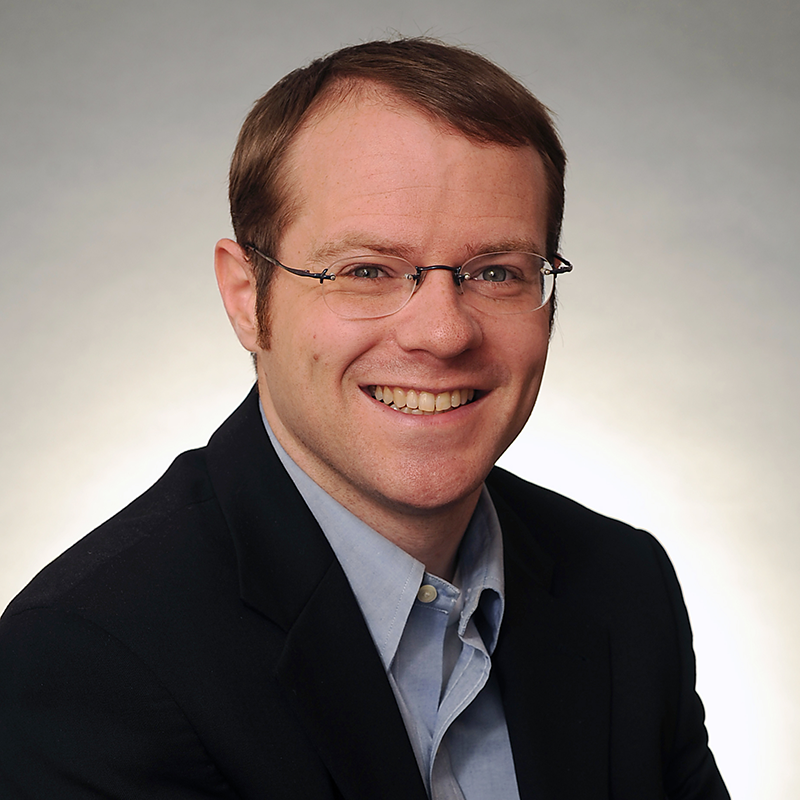 Benjamin K. Sovacool
Benjamin K. Sovacool
Director of the Sussex Energy Group
Professor of Energy Policy at the Science Policy Research Unit (SPRU)
University of Sussex Business School in the United Kingdom
Energy Transition: Past, Present, and Future
Dr. Benjamin K. Sovacool is Professor of Energy Policy at the Science Policy Research Unit (SPRU) at the University of Sussex Business School in the United Kingdom. There he serves as Director of the Sussex Energy Group.
Professor Sovacool works as a researcher and consultant on issues pertaining to global energy policy and politics, energy security, energy justice, climate change mitigation, and climate change adaptation. More specifically, his research focuses on renewable energy and energy efficiency, the politics of large-scale energy infrastructure, designing public policy to improve energy security and access to electricity, the ethics of energy, and building adaptive capacity to the consequences of climate change.
His research has been endorsed by U.S. President Bill Clinton, the Prime Minister of Norway Gro Harlem Brundtland, and the late Nobel Laureate Elinor Ostrom, among others. He is a Lead Author of the Intergovernmental Panel on Climate Change’s Sixth Assessment Report (AR6), due to be published in 2022, and an Advisor on Energy to the European Commission’s Directorate General for Research and Innovation in Brussels, Belgium.
He has played a leadership role in winning collaborative research grants worth more than $28.2 million in directly managed funds, including those from the U.S. Department of Energy, U.S. National Science Foundation, MacArthur Foundation, Rockefeller Foundation, Energy Technology Development and Demonstration Program of Denmark, the Danish Council for Independent Research, the European Commission and the European Research Council. In the United Kingdom, he has served as a Principal Investigator on projects funded by the Economic and Social Research Council, Natural Environment Research Council, and the Engineering and Physical Sciences Research Council.
He is the recipient of multiple national and international awards and honors, including the “Distinguished Graduate Alumni Achievement Award” from his Alma Mater Virginia Tech, the 2019 USERN Prize for his work on “Social Justice in an Era of Climate Change and Energy Scarcity,” the “Dedication to Justice Award” given by the American Bar Association, and a “Distinguished Visiting Energy Professorship” at the Environmental Law Center at Vermont Law School. He is also an Academician of the Academy of Social Sciences in the United Kingdom.
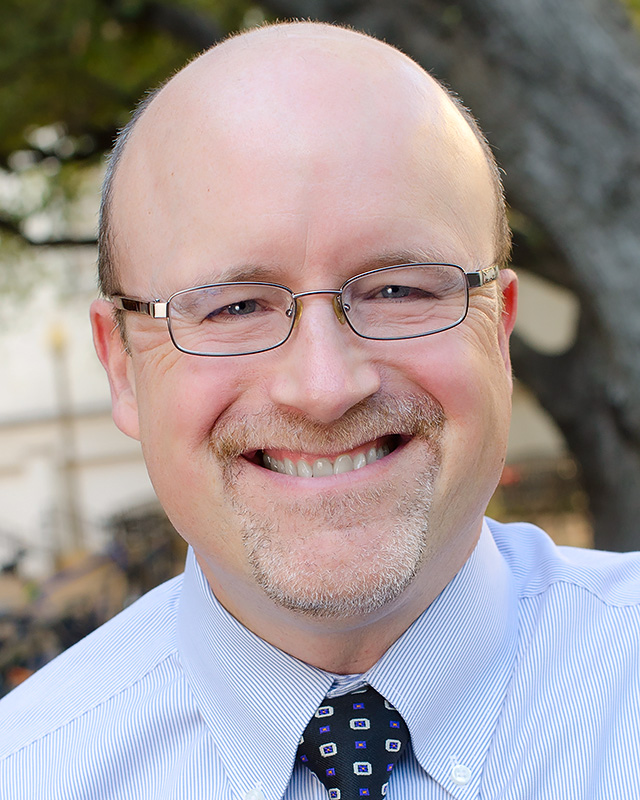 David Spence
David Spence
Professor of Business, Government and Society
The University of Texas at Austin School of Law
Sustaining the Transition: A New Social Contract
David Spence is Baker Botts Chair in Law at the University of Texas School of Law, and Professor of Business Government & Society at the McCombs School of Business. Professor Spence is co-author of the leading energy law casebook, Energy, Economics and the Environment (Foundation Press), and has published numerous scholarly articles on subjects relating to energy policy, regulation and the regulatory process. Professor Spence’s research focuses on the law and politics of energy regulation, broadly defined. His scholarly writings address the environmental regulation of the oil and gas industry and the electric utility industry, as well as economic regulation (regulation of price and competition) in the public utility industry. He has Ph.D in political science from Duke University and a J.D. from the University of North Carolina.
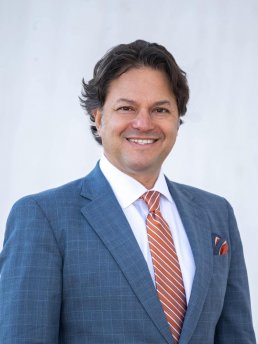 David Springer
David Springer
Interim Dean and Director of RGK Center for Philanthropy and Community Service
LBJ School of Public Affairs
Philanthropy in Energy Transition: The Visible Hand?
David W. Springer, Ph.D., is the interim dean, director of the RGK Center for Philanthropy and Community Service, and a university distinguished teaching professor. After receiving his Ph.D. in social work from Florida State University, he joined the faculty at UT Austin in 1997. Springer began his career as a clinical social worker with adolescents and their families. Bridging direct practice and public policy, his research and teaching coalesce around effective leadership, nonprofits and systems to strengthen communities. He leads the RGK Center team in preparing the next generation of nonprofit and philanthropic leaders. He serves on several national and local nonprofit boards and provides executive leadership training and mentoring for nonprofit professionals.
Springer has been recognized for his leadership in the field and impact on society: Nonprofit Times Power & Influence Top 50, a national list of the top working executives in the nonprofit sector; fellow of the Society for Social Work and Research; among the 100 most influential social work journal authors by the British Journal of Social Work; and distinguished alumni in social policy and administration by the Florida State University College of Social Work.
 Jennie Stephens
Jennie Stephens
Director of the School of Public Policy and Urban Affairs
Dean’s Professor of Sustainability Science & Policy
Northeastern University
Sustaining the Transition: A New Social Contract
Jennie C. Stephens is the Dean’s Professor of Sustainability Science and Policy and Director of Northeastern’s School of Public Policy and Urban Affairs. Her research, teaching, and community engagement focus on social and political aspects of renewable energy transformation and equitable, just responses to the climate crisis. She is an expert on institutional and cultural innovation in the energy sector, including gender diversity, energy democracy, and energy justice. Her work explores the dangers of investing too heavily in technological fixes for climate mitigation and climate adaptation. She advocates for centering social justice, racial justice and economic justice in climate and energy policy and investing more in social and organizational innovation.
Professor Stephens’ most recent book, Diversifying Power: Why We Need Antiracist, Feminist Leadership (Island Press, 2020), inspires collective action by elevating the stories of innovative diverse leaders who are linking climate and energy with jobs and economic justice, health and food, transportation and housing. Before Northeastern, Professor Stephens was on the faculty at the University of Vermont (2014-2016) and Clark University (2005-2014). She earned her PhD at Caltech in environmental science & engineering and her BA at Harvard in environmental science & public policy.
 Vijay Swarup
Vijay Swarup
Vice President of Research and Development, ExxonMobil
Technology Pathways: Fork in the Road?
Dr. Swarup joined ExxonMobil in 1987 as an engineer at Exxon Research and Engineering in Clinton, New Jersey. Over his career, he has progressed through a variety of engineering, planning and managerial roles at company locations in Redwater, Alberta, Canada; Baytown, Texas; Baton Rouge, Louisiana; Houston, Texas and Fairfax, Virginia.
In 2006, he became the Global Technology Planning Manager for ExxonMobil Chemical. In 2008, he was appointed Global Olefins Marketing Manager for ExxonMobil Chemical Company. He moved from Houston, Texas to Fairfax, Virginia in 2010 to become Vice President of Basestocks, Specialties and Asphalt for ExxonMobil Lubricants and Specialties Company. He was appointed Manager of Planning and Business Development for ExxonMobil Chemical in April, 2012.
In April, 2013, Dr. Swarup was appointed Corporate Strategic Research Manager, ExxonMobil Research and Engineering Company. On November 1, 2014, he was appointed Vice President, Research and Development, ExxonMobil Research and Engineering Company.
Vijay holds Bachelor of Science degrees in Chemistry and in Chemical Engineering from Purdue University and a PhD in Chemical Engineering from Rutgers University.
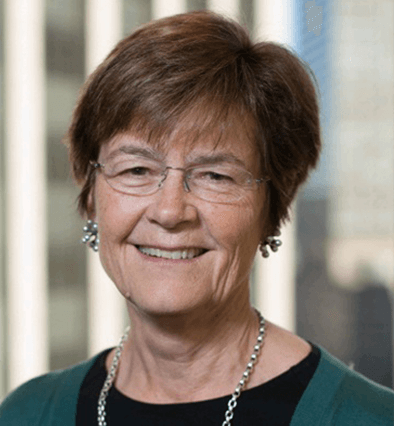 Sue Tierney
Sue Tierney
Senior Advisor
Analysis Group
Funding the Transition: How Not to Break the Bank
Dr. Tierney is an expert on energy policy and economics, specializing in the electric and gas industries. She has consulted to companies, governments, nonprofits, and other organizations on energy markets, as well as economic and environmental regulation and strategy. Her expert witness and business consulting services have involved industry restructuring, market analyses, utility ratemaking and regulatory policy, clean energy regulatory policy, transmission issues, wholesale and retail market design, and resource planning and procurement.
Dr. Tierney is a former assistant secretary for policy at the US Department of Energy, state cabinet officer for environmental affairs, and state public utility commissioner. She chairs the board of directors of Resources for the Future and of ClimateWorks Foundation, serves on the external advisory board of the National Renewable Energy Laboratory, and is a director of the World Resources Institute and of other boards. She has published widely, frequently speaks at industry conferences, and has lectured at many leading universities.
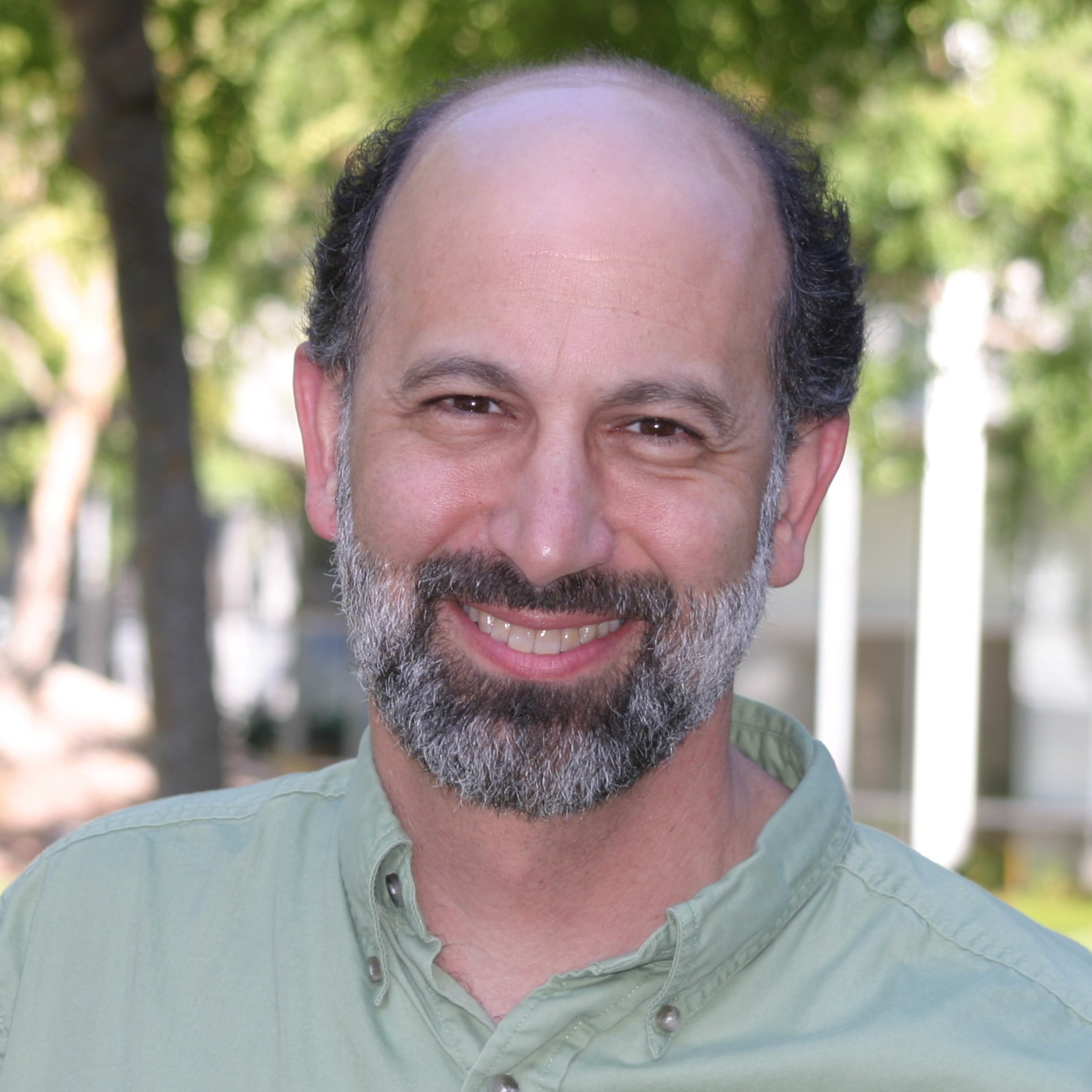 Bill Weihl
Bill Weihl
Executive Director, Climate Voice
Sustaining the Transition: A New Social Contract
Bill Weihl is the Founder and Executive Director of ClimateVoice, a non-profit initiative launched in February 2020 that is focused on encouraging companies to go “all in” on climate – especially in their use of their voice and influence to support public policy, everywhere they operate.
From 2012 to 2018, Bill Weihl was Director of Sustainability at Facebook. He built a team that directs work on sustainability and energy efficiency across the company, driving projects to track and reduce the company’s environmental footprint in all aspects of its operations. They also drove cross-industry collaborations, including playing critical roles in RE100 and the Renewable Energy Buyers Alliance.
Prior to Facebook, Bill was Green Energy Czar at Google, where his team pioneered Google’s work to buy clean energy for its data centers, and helped found the Climate Savers Computing Initiative with Intel and WWF.
Bill was an Expert-In-Residence at the Presidio Graduate School during the Fall 2019 semester. He is also on the board of directors of the Sierra Club Foundation and of Acterra, and on the boards of WeSpire and Common Energy. He has received numerous awards, including Time Magazine’s Hero of the Environment (2009), the Global Green Award for environmental leadership (2016), and the VERGE Vanguard Award (2018).
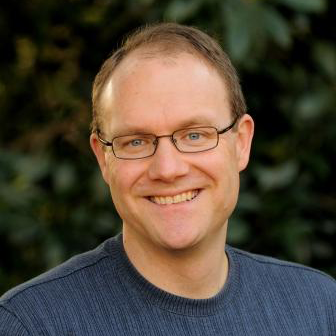 Ryan Wiser
Ryan Wiser
Senior Scientist, Electricity Markets and Policy Department
Lawrence Berkeley National Laboratory
Technology Pathways: Fork in the Road?
Dr. Ryan Wiser is a Senior Scientist in and leader of the Electricity Markets and Policy Department at Lawrence Berkeley National Laboratory. Ryan oversees a 35-person department that seeks to inform public and private decision making within the U.S. electricity sector through research on electric system planning, reliability and regulation as well as on energy efficiency, renewable energy, and demand response. Ryan specifically leads a research program on renewable electricity systems, including on the costs, benefits, impacts and market potential of renewable electricity sources; on electric grid operations and infrastructure impacts; on public acceptance and deployment barriers; and on the planning, design, and evaluation of renewable energy programs.
Ryan has been a lead author for two reports by the Intergovernmental Panel on Climate Change, and he has offered invited testimony to the U.S. Senate. He is a founding member of the academic advisory board for the University of San Francisco’s Master of Science in Energy Systems Management; serves on the board of directors for the Clean Energy States Alliance; serves as a United States representative on a multi-country IEA Wind collaboration on the cost of wind energy; and is an advisor to the Energy Foundation’s China program. His work has received awards from the Utility Variable-Generation Integration Group, the American Real Estate Society, the Wind Powering America Program, Institutional Investor News, the American Wind Energy Association, and Lawrence Berkeley National Laboratory.
Ryan has been a consultant to, among others, the California Energy Commission, the New York State Energy Research and Development Authority, the International Energy Agency, the World Bank, the Center for Resource Solutions, and several private companies. Prior to his employment at Berkeley Lab, Ryan worked for Hansen, McOuat, and Hamrin, Inc., the Bechtel Corporation, and the AES Corporation.
Ryan holds a B.S. in Civil Engineering from Stanford University and an M.S. and Ph.D. in Energy and Resources from the University of California, Berkeley.
